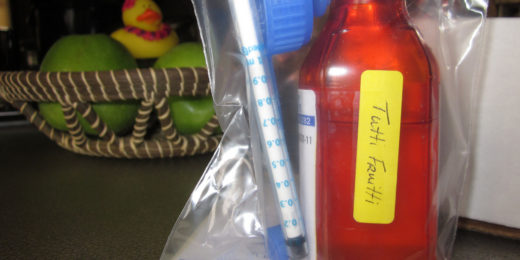The Childx conference, a TED-style event happening next week at Stanford, will feature a keynote session by bioethicist Jeffrey Kahn, PhD, director of the Johns Hopkins Berman Institute of Bioethics.
Kahn’s longstanding interest in ethical issues around emerging biomedical technologies puts him firmly at the intersection between pediatric medical science and public policy — the theme of this year's conference. Conference registration is still open.
Advances in gene editing technology are raising challenging ethical questions, particularly for assisted reproductive technology. What issues are at the forefront?
Opportunities now exist to really control the genetic makeup of our future children.
In the past, we’ve typically said, no mucking at genetic level in ways that create heritable change. No germ line modification. Part of the ease of creating that limit was that it wasn’t technically feasible. Now that it is feasible, is that do-not-cross line worth sticking to?
What if someone has a terrible disease, such that the only way to create a genetically related child is to do genetic modification on their sperm or eggs, not only producing changes in that resulting child but also making changes that will be passed on to that child’s offspring, possibly resulting in eventual elimination of a certain genetic trait from the population? Is that always something we should prohibit?
Here’s where the limits of science start to come in. For instance, we know sickle cell anemia is really bad, but sickle cell trait [that is, having just one copy of the defective gene] protects you from malaria.
This points back to the bigger question of why certain genetic traits persist in human populations... so let’s be a little bit careful jumping immediately to the conclusion, 'if it’s really that bad, why don’t we get rid of it altogether?'
What other bioethical issues are facing the field of pediatrics today?
There are now very good, but very expensive therapies for diseases like spinal muscular atrophy. The drug now available to treat it is priced at something like $750,000 for the first year.
For babies with SMA, [who have the most severe form of the disease, and will die without treatment], there is a straightforward ethical argument for providing treatment: The sooner you treat them, the more function you preserve.
However, the drug also stops progression in anybody with a more mild form of the disease, but the price doesn’t go down if you have less deterioration to prevent. How should caregivers be thinking about "value" in such cases? Is it ever appropriate to say to a patient, 'The benefit you would receive is not sufficient to justify the cost?' How should we, as a society, handle the dilemmas raised by increasingly expensive drugs?
How can these challenges be addressed?
We want the benefits of amazing new technologies to be realized in ways that are responsible.
Part of the issue with ensuring that happens relates to how international science has become. Conversations like this aren’t new, but they have previously happened mostly among scientists in just a few countries, such as the U.S., large European countries and Japan. In the past, that group could effectively claim leadership and say 'This is how responsible people should be using things.'
But that’s not science in 2018. It’s a more democratic environment, which is good, but it complicates how we might think about crafting guidelines that might be adhered to transnationally.
Where should ethical leadership come from now? It’s a really important question. One answer to this question is that the scientific journals have a big role to play. Everyone wants to publish in the best places. Journal editors need to get together and say, 'You can only publish your paper if you follow these guidelines.' That would have a big effect.
The national academies — such as the U.S. National Academies of Science, Engineering and Medicine, the Royal Society in the U.K. and the Chinese Academy of Science — are also playing a role.
How do we take recommendations about principles and put flesh on the bones in making policy and laws, and make sure people abide by them? There isn’t a model, unfortunately, or an organization where international guidelines or policies for biomedical research get issued — every country is left to create its own.
How do bioethical concerns affect pediatric medical practice?
We have colleagues in the NICU who are working every day to better address the ethical issues faced in that environment, card-carrying bioethics scholars who are also neonatologists. I think it's really important to train more pediatricians, in whatever their specialty might be, to a greater depth in bioethics, to help them in thinking about the ethical issues they will face in their practice. The people actually delivering care are critically important for working on bioethics questions.
Photo by Stuart Caie






